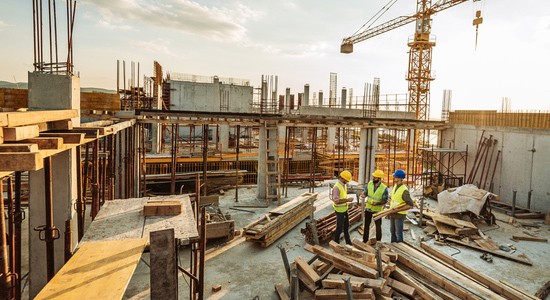Structures and Buildings Allowance (SBA)
The Chancellor announced on 29 October 2018 the introduction of a new capital allowance for new on-residential structures and buildings (SBA). After consultations the draft legislation has been published for the new Structures and Buildings Allowance which differs from the original proposals announced in October 2018.

Core structure and timing of relief.
This remains as originally outlined in chapter 3 of the budget technical note:
a) relief will be given at a flat rate of two percent over a 50-year period
b) relief will be available for new commercial structures and buildings, including costs for new conversions or renovations
c) relief is available for UK and overseas structures and buildings, where the business is within the charge to UK tax
d) relief will be limited to the costs of physically constructing the structure or building, including costs of demolition or land alterations necessary for construction, and direct costs required to bring the asset into existence
e) relief is available for eligible expenditure incurred where all the contracts for the physical construction works were entered on or after 29 October 2018
f) claims can only be made from when a structure or building first comes into use
g) land costs or rights over land will not be eligible for relief, nor will the costs of obtaining planning permission
h) the claimant must have an interest in the land on which the structure or building is constructed
i) dwelling houses will not qualify, nor any part of a building used as a dwelling where the remainder of the building is commercial
j) sale of the asset will not result in a balancing adjustment – instead, the purchaser takes over the remainder of the allowances written down over the remaining part of the 50-year period
k) expenditure on integral features and fittings of a structure or building that are currently allowable as expenditure on plant and machinery, will continue to qualify for writing down allowances for plant and machinery including the Annual Investment Allowance (AIA) up to its annual limit l) SBA expenditure will not qualify for the AIA m) where a structure or building is renovated or converted so that it becomes a qualifying asset, the expenditure will qualify for a separate two percent relief over the next 50 years.
What has changed:
Disuse: relief will continue to be available, with no prohibition for periods of disuse.
Demolition: Demolition would usually be considered a disposal event for capital gains purposes. As informed by discussion with stakeholders, any unrelieved expenditure would therefore be claimed as a deduction in arriving the capital gains computation. This would avoid businesses having to continue with ‘shadow’ SBA claims, after the structure or building has been demolished or where interest in land may have expired, whilst at the same time ensuring investors remain able to claim relief for all qualifying construction costs.
Leases: The policy remains that where the term of the lease is not more than 35 years, all the allowances will stay with the lessor. Where leases exceed 35 years, and the amount paid as a capital sum for a lease (including the element of a lease under 50 years allocated to capital) is 75 percent or more of the sum of that capital amount and the value of the retained interest in the property, the relevant interest is transferred to the lessee. Separate rules will apply to wasting and non-wasting leases, both to ensure that all eligible expenditure is relieved, and to avoid double relief. The rules will also look to ensure that lessors do not unduly benefit from unclaimed relief upon expiry of a lease.
You can find the draft legislation here: https://assets.publishing.service.gov.uk/government/uploads/system/uploads/attachment_data/file/785034/Capital_allowances_for_structures_and_buildings_-_Introductory_note_to_draft_secondary_legislation_and_draft_secondary_legislation.pdf
Related News Articles
Mileage Tax Relief Guide
Guide to Claiming Tax Relief on Mileage Expenses (Where Reimbursed Below HMRC Rates) Step 1: Confirm Eligibility You may claim tax relief if: - The mileage relates strictly to business travel (not ordinary commuting). - You are using your own vehicle. - Your employer reimburses you below the HMRC Approved Mileage Allowance Payments (AMAP): -…
Government to Raise Income Threshold for Self-Assessment Reporting and Launch Simple Online Tax Payment System
Move expected to reduce administrative burdens for up to 300,000 taxpayers The Government has announced its intention to raise the income threshold at which individuals are required to register for Self-Assessment. This change will affect taxpayers with low levels of trading, property, or miscellaneous income and forms part of a broader package aimed at simplifying…
Mandatory Real-Time Reporting of Benefits in Kind Delayed Until April 2027
HMRC delays mandatory payrolling of most employee benefits by one year HM Revenue & Customs (HMRC) has confirmed a 12-month delay in the implementation of mandatory real-time reporting for most benefits in kind (BiKs). Initially expected to come into force in April 2026, the requirement will now apply from April 2027. This extension follows feedback…